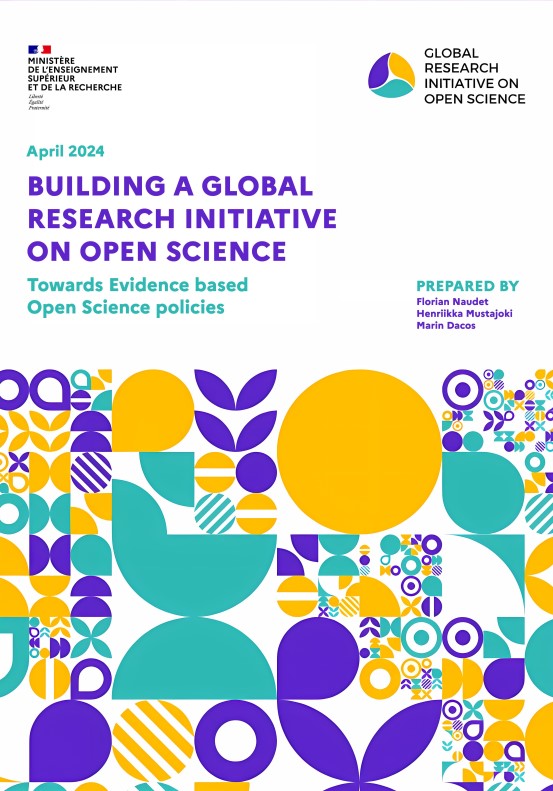Global Research Initiative on Open Science : Publication of a French proposal to strengthen evidence based open science policies
The lack of a detailed understanding of the complexity of open science is an obstacle to the development of public policies targeted to encouraging its progress. The Global Research Initiative on Open Science (GRIOS), proposed by France, aims to fill this gap by drawing from research on open science to promote more effective science policies. It follows on from the G7 Communiqué (May 2023), which encourages initiatives that leverage the results of scientific research to inform open science public policy (Appendix 1).
GRIOS represents an unprecedented effort to gain a better understanding of the various dimensions of open science, in particular its progress, obstacles and impacts. This initiative aims to:
- Produce in-depth reviews of existing research on open science worldwide, in order to synthesize current knowledge and identify opportunities and challenges;
- Formulate recommendations for open science policies based on the results of the scientific research highlighted by the reviews;
- Propose a research agenda to fill gaps in current knowledge on open science and promote new research on the subject;
- Establish a global network of organisations and researchers committed to the development of open science, in order to facilitate the exchange of knowledge and foster collaboration in the scientific field.
Published on the occasion of the OECD ministerial meeting (23-24 April 2024), the report outlines possible ways of structuring GRIOS and constitutes a proposal submitted to the scientific community. It invites any stakeholder engaged in research to join GRIOS. The initiative is open to research institutions, funders, science policy institutions and interested practitioners.
The GRIOS project will be particularly attentive to taking into account the whole range of knowledge on open science, and will therefore not limit itself to English-language publications, in order to take a comprehensive view of the whole research ecosystem. In particular, it will be attentive to the consideration of knowledge and experience from southern countries and young researchers across genders. It will, of course, cover all the academic disciplines. These diverse approaches will not only enrich the results, but also foster a more equitable and inclusive open science landscape. In this sense, GRIOS represents a crucial step towards fulfilling the full potential of open science. By systematically addressing the challenges and opportunities associated with open science, the initiative will play a central role in shaping the future of research and its contribution to society.
Florian Naudet, Henriikka Mustajoki,Marin Dacos. Building a Global Research Initiative On Open Science: Towards Evidence based Open Science policies. The Committee for Open Science. April 2024.
DOI: 10.52949/54
References :
Matthew Cloutier, Marin Dacos. Report of the G7 Open Science – Research on Research Sub-Working Group: Prepared for the G7 Open Science Working Group. The Committee for Open Science. 2023.
DOI :10.52949/32
Contact : coso@recherche.gouv.fr





